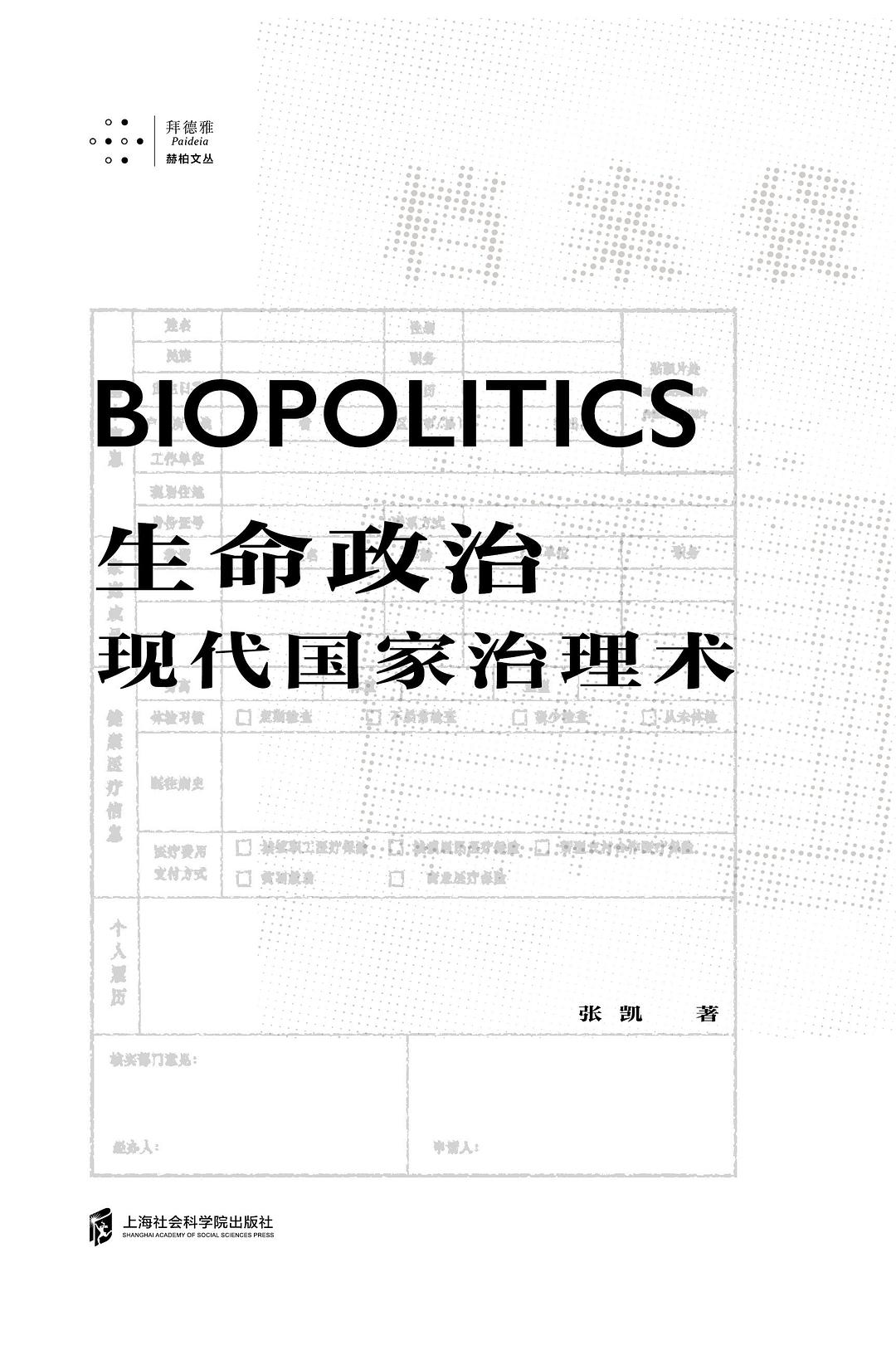WULOLIFE
《生命政治:现代国家治理术》作者: 张凯出版社: 上海社会科学院出版社
《生命政治:现代国家治理术》作者: 张凯出版社: 上海社会科学院出版社
Couldn't load pickup availability
Description
内容简介 · · · · · ·
- 编辑推荐 -
汪民安:“'生命政治'是福柯最珍贵的思想遗产之一,但关于这个关键概念却众说纷纭。福柯本人也曾在不同的场合以不同的意义使用这个概念,这让这份遗产变得更加复杂。张从而对这个关键概念和这份珍贵遗产进行了完整、准确、清晰的探讨。这是国内福柯研究的一项重要推进。”
- 内容简介 -
“生命政治”是一套复杂而精密的治理艺术,或者说,它是现代社会特有的权力装置。它让现代人接受某种有关自身的真理,接受种种权力技术的干预,也接受危险。而且,“生命政治”绝不是传统意义上的国家统治策略,也不是某种主权权力的压迫,而是那些日常的、社会化的机制。它是学校中的教育,也是监狱中的改造;它是医院中的治疗,也是对传染病人的隔离;它是社会中的福利保障,也是种族的大屠杀;它保证人们自由,也剥夺人们选择另一种生活的权利。“生命政治”要求人们活着,并且它也会努力赋予人们一种更好的生活。但在现代社会对人们幸福生活的许诺中,福柯所看到的,却是另外一幅图景:规训的个体、想象的匮乏、快感的遗忘、自由的控制。也正是因为如此,福柯才对僭越、危险生活、死亡充满了迷恋:“毋宁让我们为抹去一切的死亡赋予一种意义和美.”
作者简介 · · · · · ·
张凯,1985年生,现工作于北京市社会科学院文化研婶,研究方向为法国哲学、文化研究、空间研究等,译有《文字即从荷尔德林。
